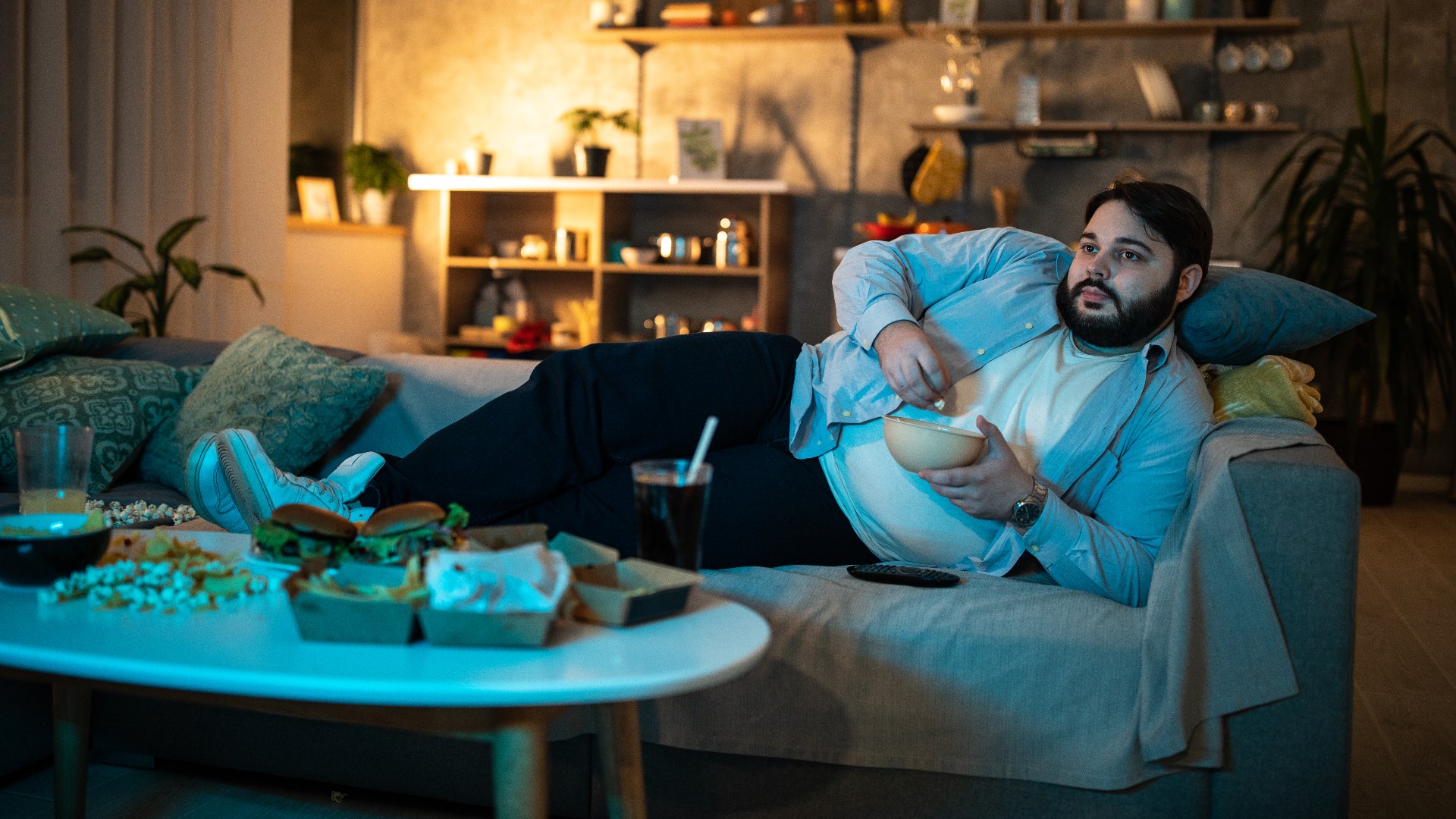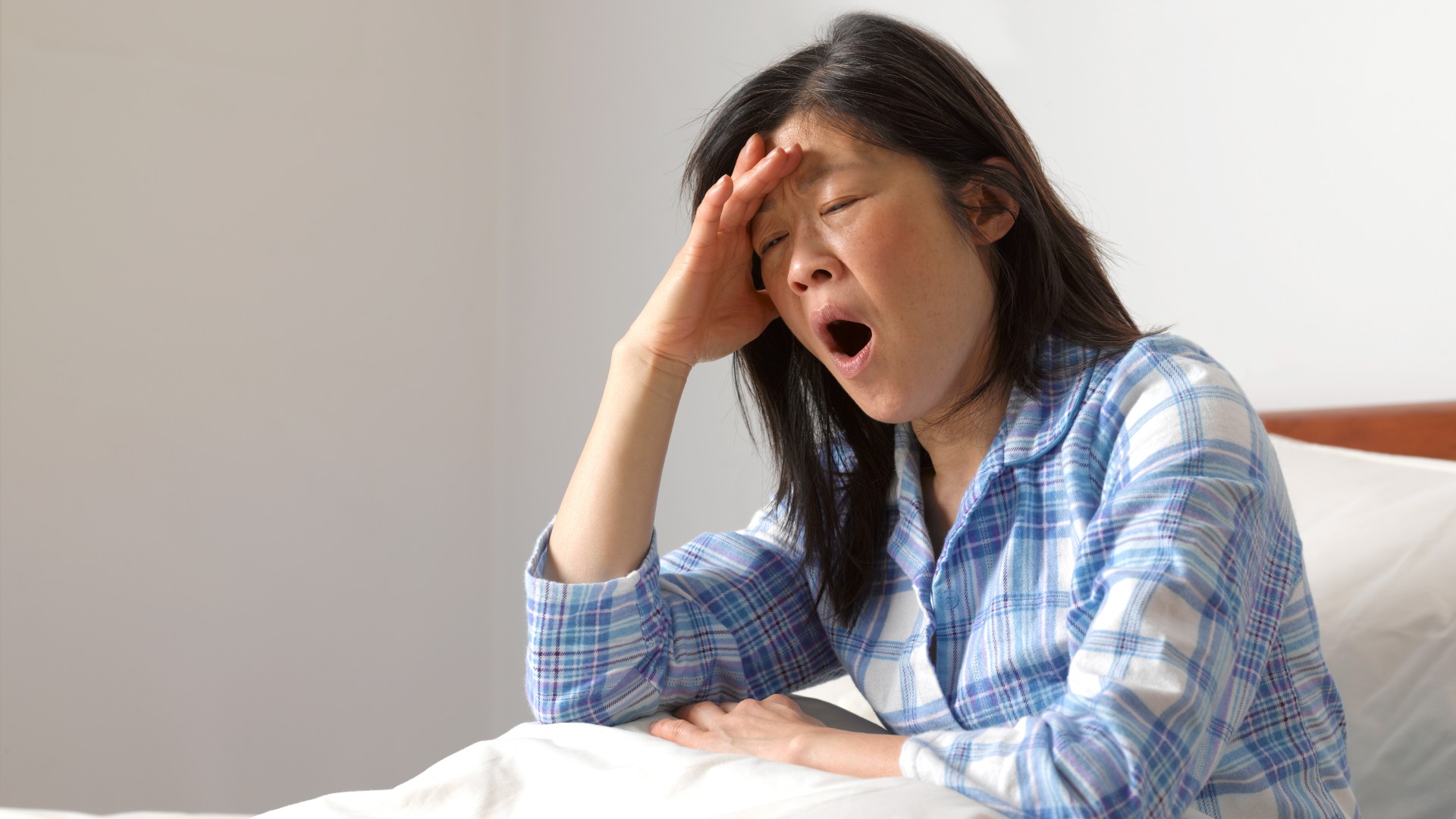Is it bad to eat before bed? It’s a controversial topic, and the common perception is that we should avoid eating late, as it could cause weight gain. This is down to the assumption that the body doesn’t have time to digest the food before sleep, meaning it could instead be stored as fat rather than used as energy.
“When sleeping, your metabolism may slow down by 10% to 15% less than during waking hours,” says registered dietitian Dr. Melissa Prest, a spokesperson for the Academy of Nutrition and Dietetics (opens in new tab). “To help your body digest its food, stop eating two to three hours before bed, and make sure that you have eaten enough during the day and are full and satisfied. You want to help your body rest and repair at night, so be mindful of what feels right for you.”
Here, we’ve spoken to the experts to find out just what effects eating before bed can have on the body. For more ways to improve sleep quality, don’t miss our guide to the best magnesium supplement.
What happens if you eat before bed?
Digestion
“When we eat, our bodies work to digest and absorb the energy and nutrients from the food,” says nutritionist Signe Svanfeldt, from healthy eating app Lifesum (opens in new tab). Eating a large quantity of food before bedtime can cause stomach discomfort as well as interfere with our circadian rhythm [the body’s internal clock], which impacts our sleep.”
But can eating before bed cause weight gain, too? It depends on what you’re eating, says Svanfeldt.

“We gain weight when we eat more energy than we burn for a period of time. Even when sleeping, we do burn energy supporting our body’s organs, functions and tissues, although we of course burn more when we are awake and active.
“It’s not only about when we eat, but what we eat. Fatty, deep-fried foods, eating too-large portions or too fast can cause stomach upset, as well as acid reflux.”
She adds that weight gain from eating before bed can be because some people are snacking on energy-dense, nutrient-poor foods late at night, which can lead to an excessive energy intake and obesity, according to research in Nutrition Reviews (opens in new tab). Some studies (opens in new tab) suggest that eating late on a regular basis could lead to high blood pressure, cholesterol and weight gain. That said, our bodies are all different and work in individual ways.
“Ultimately, it’s all about the whole picture of our eating habits: what, when and how we eat determines how well our diet fits our needs,” says Svanfelt. “A balanced, varied diet in line with our individual energy requirements is key.”
Weight
Research in the Journal of Obesity (opens in new tab) has revealed that those who eat a large meal close to bedtime tend to skip breakfast because they are still full, and are also more likely to be overweight. According to Prest, “eating a carbohydrate-rich meal close to bedtime may cause your body to store it as fat rather than as immediate fuel”. This is because spikes in insulin signal to the body to store fat for energy reserves. And the worst thing to eat late is anything that is too high in sugar or fat, explains Prest, which has the same effect on insulin levels. As your metabolism slows, having a large sugary treat triggers insulin to rise and signals to the body to store fat.
However, Prest isn’t totally against eating before bed, as long as it’s not too big of a meal or snack. “Eating a light snack before bed is perfectly fine. For some people, if they eat a larger meal too close to bedtime they may find that they have difficulty falling asleep,” she says.
“If you are eating before bed, choose a small evening snack that includes some fiber and protein like an apple and 1-2 tablespoons of peanut butter. The fiber helps to slow the rise of glucose after eating and the protein helps with muscle repair and healing.”

Dr. Melissa Prest, DCN, MS, RDN, CSR, LDN
Dr. Melissa Prest is a registered dietitian from Chicago. She works at the National Kidney Foundation of Illinois where she provides medical nutritional therapy for clients with kidney disease and other chronic diseases. Prest is a board-certified specialist in renal nutrition and a member of The Academy of Nutrition and Dietetics’ Renal Dietitians’ dietetic practice group.
Sleep quality
Sleep expert Dr. Lindsay Browning (opens in new tab), a chartered psychologist, neuroscientist and author of Navigating Sleeplessness, says: “Once it’s bedtime it’s not a good idea to eat any food because your circadian rhythm would have, in essence, shut down your digestive system overnight. That means eating when your body thinks you should be asleep is not helpful and could lead to digestive issues and difficulty with sleep.”
Browning’s point appears to be backed by science, with a 2020 study in the International Journal of Environmental Research and Public Health (opens in new tab) finding that the timing of food intake could have a significant effect on sleep patterns. The research looked at university students and evening meal timings – defined as within three hours of bedtime – and concluded that eating later was a “potential risk factor for nocturnal awakenings and poor sleep quality”.

Dr. Lindsay Browning
Chartered psychologist and neuroscientist Dr Lindsay Browning is a sleep expert at Trouble Sleeping (opens in new tab) and author of the self-help sleep book Navigating Sleeplessness (opens in new tab). She founded Trouble Sleeping in 2006 to help people improve their sleep and wellbeing through sleep therapy and advice based on Cognitive Behavioral Therapy for Insomnia (CBT-I) – the gold standard treatment for insomnia.
The body processes food differently at different times of day and our circadian rhythm can get confused if you eat before bed, according to Browning.
“Our circadian rhythm affects our digestive system – controlling when we produce digestive enzymes is one important function. This means we are not geared up to digest food during the night when our body thinks we should be asleep,” she says. “Eating late, or even during the night, could make your circadian rhythm think that you should be awake – since you are eating instead of sleeping – hence you may struggle to sleep if you get used to eating at night.”
So it is bad to eat before bed? Browning says: “If we go to bed hungry then we may struggle to sleep since our body will be anxious because we are hungry. However, if we eat a lot of food too late we may get indigestion and struggle to sleep well.”

Are there any benefits of eating before bed?
While the experts can’t seem to agree if it’s bad to eat before bed, if you want to know about foods to help you sleep, then there are some that contain certain sleep-enhancing compounds, nutrients and antioxidants.
Fatty fish like salmon are rich in omega-3s and vitamin D, two nutrients that regulate the happiness hormone serotonin, which is also responsible for establishing a healthy sleep-wake cycle. Nuts, also full of omega-3 fatty acids, have a similar effect. Oats contain amino acid tryptophan, which contributes to the melatonin pathway and promotes good quality sleep. Foods containing calcium and magnesium, like dairy products, can boost sleep, too.
Browning says: “A small snack before bed including complex carbohydrates and dairy may be beneficial for sleep, such as a small bowl of oatmeal. The complex carbohydrates will provide slow-release energy through the night and the dairy contains tryptophan, which is a precursor of melatonin, our sleep hormone.
“Another ideal pre-bedtime snack would be a brown bread turkey sandwich, because turkey is also high in tryptophan. However, eating something fatty before bed would not be advised because it would likely be difficult to digest and lead to indigestion, and a high sugar food before bed would release too much energy quickly, keeping you more alert instead of helping you be relaxed.”
This article is for informational purposes only and is not meant to offer medical advice.


